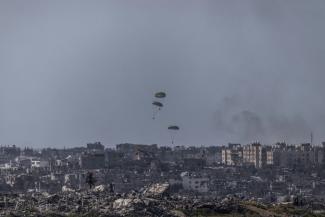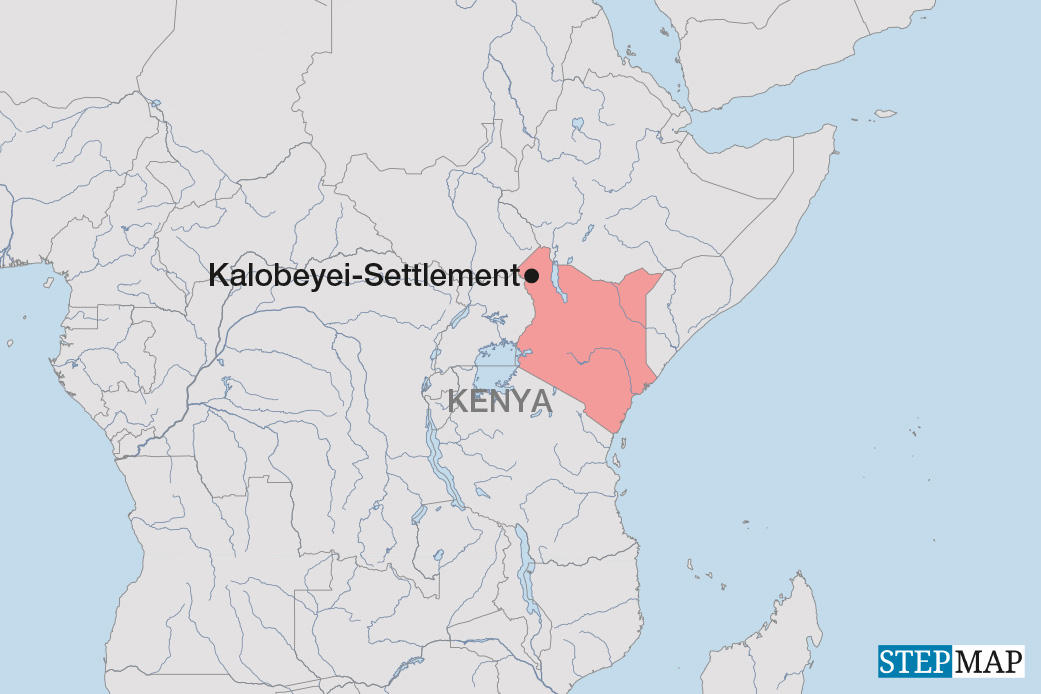Rules-based world order
In Gaza, children are dying of hunger

In the northern Gaza Strip, 15.6 % of children under the age of two are now suffering acute malnutrition. The consequences include rapid weight loss, muscle atrophy and significantly weakened immune systems. Death by disease or sheer starvation eventually follows. Some infants have died already.
In the past five months, famine in Gaza has been advancing at an unprecedented pace, according to the Global Nutrition Cluster. The Israeli army claims to be in control of the area affected worst. According to international humanitarian law, Israel must therefore take care of people’s basic needs.
On 26 January, the International Court of Justice (ICJ) passed a binding order emphasising this fact. It told Israel to “take all measures within its power to prevent” any acts that could constitute genocide under the respective convention. Even Aharon Barak, the Israeli judge in the matter, agreed that humanitarian aid must be delivered with “unimpeded access” to Gaza and that Israel must prevent and prosecute the use of genocidal rhetoric.
Far too few trucks
Nonetheless, what is happening in Gaza now very much resembles to what Defence Minister Yoav Gallant announced in early October. He said Israel would cut Gaza off from electricity, water, food and fuel in a “complete siege”. While it is true that the complete siege did not last long, far too few aid trucks have been allowed into the territory.
Before the war, some 500 to 550 trucks per day delivered vital supplies to the Gaza Strip. That number has dropped to approximately 100 per day in February. Indeed, things even became worse after the ICJ order. As soon as the hearings were over, the German government called the case initiated by South Africa “baseless”.
US President Joe Biden has stated clearly that Israel must alleviate the situation, but he refuses to draw a red line. Israel still enjoys unconditional US support. The White House has ordered airdrops of aid supplies to Gaza and plans to deliver aid by sea as well. The German government has declared its support for both.
For several reasons, this approach does not make sense. The people in Gaza need food now, but it will take sixty days to build the provisional pier that Biden has promised. Air lifts are very expensive while they provide very little goods and cannot secure the delivery to those most in need.
For humanitarian agencies, airdrops are only the last resort when supplies must be brought to areas that are totally inaccessible by land, for instance after an earthquake or heavy flooding. The Gaza disaster, by contrast, is unfolding only a few kilometres away from Israel and Egypt where supplies are abundant. Israel has the means to stop this disaster, and the legal obligation to do so.
War crimes by one side do not justify the other side to retaliate in kind
It is a war crime to weaponise hunger. Collective punishment is a war crime too, and so are the wanton destruction of civilian infrastructure (including universities, schools and hospitals) and the abduction, arbitrary imprisonment and torture of civilians from Gaza.
Of course, Hamas is guilty of war crimes too. They include the murder, torture and abduction of Israeli civilians on 7 October and the random firing of rockets into Israel. War crimes by one side, however, do not allow the other side to perpetrate such crimes too.
Those who supply arms to Israel could put more pressure on the country’s government. If Israel’s closest allies want the killing, suffering and dying to end, it will. Instead, they are making meagre efforts to provide humanitarian aid, distracting attention from what Israel must urgently do.
If we want a rules-based world order, we must apply existing law. Bending the rules means double standards, erodes the credibility of the multilateral system and undermines universal human rights.
Riad Othman is medico international’s Near East advisor and works in the Berlin office of this Frankfurt-based human-rights and relief organisation.
othman@medico.de
X/Twitter: https://twitter.com/othman_riad














